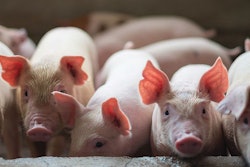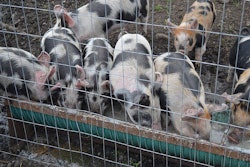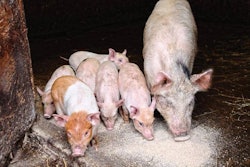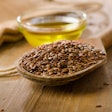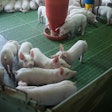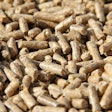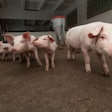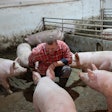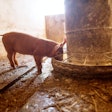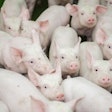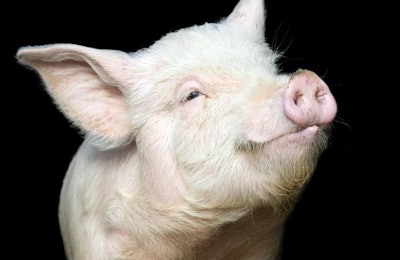
A new research project shows that fermented feed, called EP100i and containing fermented rapeseed protein, can replace zinc in pig's feed. The study shows that pigs fed with EP100i achieve a growth rate the same as or better than pigs fed with zinc oxide.
The research project, under the name MAB4, has been conducted in collaboration with Fermentationexperts AS and the University of Copenhagen, the Technical University of Denmark (DTU), the Danish Technological Institute (DTI), and others, and is supported by Innovationsfonden.
Studies process
In the study, the pigs were divided into a positive and negative zinc oxide group, and another seven groups that received different quantities of EP100i in the feed. The positive group received 2,500 ppm zinc oxide in the feed while, in the negative group, piglets did not get any added zinc. Results show that the piglets fed with EP100i without addition of zinc achieved similar or better growth rates compared with pigs receiving zinc in their feed.
“Obviously, the results of such a trial has to be verified on a much larger scale before the categorical statement can be made,” said Mette Olaf Nielsen of the University of Copenhagen. Nielsen added that the study included “a pilot trial with 50 weaner piglets in each treatment group, and all piglets in one treatment group were housed in the same pen.”
Need for zinc substitution
By 2023, the use of zinc oxide in pig feed will be banned in the EU.
“Due to the increased emission of this heavy metal and accumulation in soils, and its use in high doses in weaner piglet production has been associated with the co-selection of methicillin-resistant Staphylococcus aureus, which is now widespread in Danish pig production and has been transferred to humans,” Nielsen said.
With that in mind, the study was started in September 2017 and it will be concluded in mid-March when the experimental pigs are slaughtered. However, a new and larger trial is being started now.
“The intention is to find an alternative strategy, where the use of zinc can be substituted by another strategy, and without an increase after that in occurrence of antibiotics for treatment of diarrhea after weaning of the piglets,” Nielsen said. The feed must be fed as a mash feed and cannot be heat treated, since its effects rely on the presence of live Lactobacillus.
Moving forward in the research process
The next step is to initiate larger-scale trials.
“The goal is to confirm the very promising findings from the pilot trial, where piglets fed the Lactobacillus prefermented rapeseed product performed as well as, and for some parameters better than, piglets fed a zinc-supplemented weaner diet. The feeding of the prefermented rapeseed started 10 days before weaning, and the strongest effect on daily growth rate could be ascribed to feeding during the pre-weaning period,” Nielsen said.
It is possible that various breeds of hogs would not respond in the same manner, but Nielsen doubted that would be the case with this method of feeding.
The product is already on the market and does not need government approval, unless there are markets/sectors where it is obligatory to heat treat the feed, Nielsen said.
“The Danish pig industry and the umbrella organization for the agricultural sector in Denmark, SEGES, are trying out a lot of different strategies and remedies to search for alternatives to zinc. But to my knowledge, this prefermented rapeseed product has given the most promising results so far – although it is a pilot study and one must be very careful to conclude on its efficacy when applied on other farms and in other settings. Larger-scale trials are needed to confirm what we found in the pilot trial,” Nielsen said.

